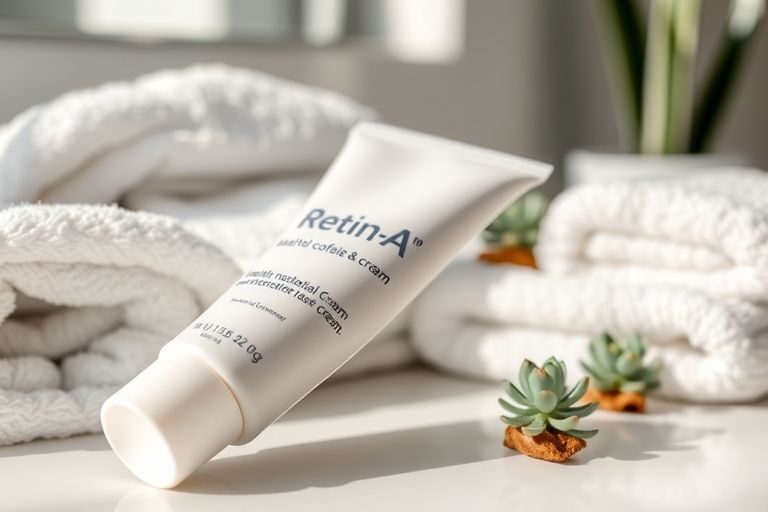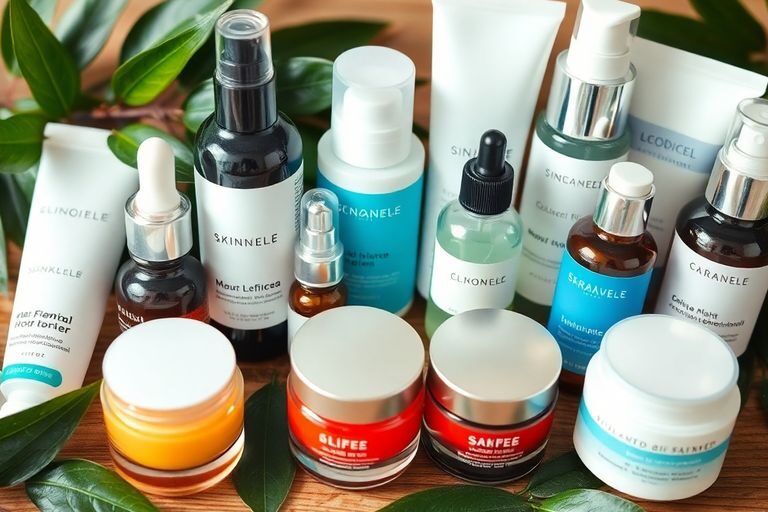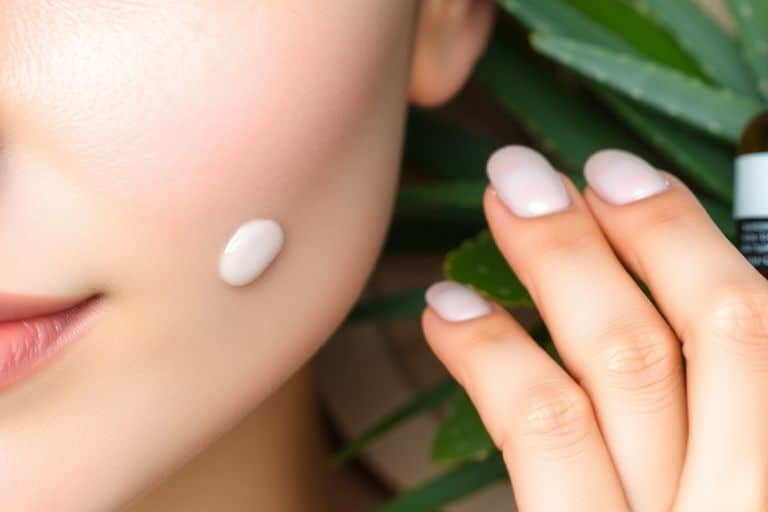If you’re looking to step into the world of aesthetics, Birmingham is a great place to start. With a variety of aesthetic courses available, you can find the right training to kickstart your career. Whether you want to work in clinics, spas, or even freelance, there are options that suit your needs and schedule. This article will guide you through the best aesthetic courses in Birmingham, highlighting what you can expect to learn and how to choose the right programme for you.
Key Takeaways
- Birmingham offers a wide range of aesthetic courses for all schedules, including full-time, part-time, and online options.
- Hands-on experience is vital in aesthetic training, with practical sessions using real clients and modern equipment.
- Courses cover essential skills like facial anatomy, injection techniques, and patient assessments.
- Specialised training in Botox, dermal fillers, and chemical peels is available for those looking to focus on specific areas.
- Choosing a reputable academy with experienced instructors and good student support is crucial for success.
Exploring Aesthetic Training Options in Birmingham
So, you’re thinking about getting into aesthetics? Birmingham’s a great place to start! There are quite a few options out there, and it’s all about finding the one that fits you best. Let’s have a look at what’s on offer.
Full-Time Courses for Aspiring Professionals
If you’re serious about jumping into aesthetics headfirst, a full-time course might be the way to go. These courses are intense but give you a really solid foundation. They’re designed to get you up to speed quickly, covering everything from the basics to more advanced techniques. You’ll be spending a lot of time in the classroom and in practical sessions, so be prepared for a full-on commitment. But if you’re looking to change careers or get qualified fast, it could be perfect. You can find many beauty aesthetics courses available in West Midlands.
Part-Time Flexibility for Busy Schedules
Not everyone can commit to a full-time course, and that’s fine! Lots of academies offer part-time options that let you study around your existing commitments. These courses usually run in the evenings or on weekends, so you can fit them in alongside work or family life. It might take a bit longer to qualify, but the flexibility can be a lifesaver. Plus, you can often find courses that focus on specific areas, like Botox and Dermal Fillers training, so you can tailor your learning to your interests.
Online Learning Opportunities
Online learning has become super popular, and aesthetics is no exception. There are loads of online courses out there, covering everything from skincare to more advanced procedures. The big advantage is the flexibility – you can study whenever and wherever you want. However, it’s important to remember that aesthetics is a very hands-on field, so you’ll need to make sure you get plenty of practical experience too. Look for courses that offer in-person training days or workshops to supplement your online learning. It’s important to research online for reputable training providers that align with your goals.
Key Skills Acquired Through Aesthetic Courses
So, you’re thinking about taking an aesthetic course? Awesome! Let me tell you about the key skills you’ll pick up. It’s not just about learning procedures; it’s about understanding the whole picture.
Understanding Facial Anatomy
First things first, you’ve got to know your way around the face. I mean, really know it. We’re talking muscles, bones, nerves, and blood vessels. It’s not enough to just memorise diagrams; you need to understand how everything interacts. This knowledge is absolutely vital for safe and effective treatments. You’ll learn:
- Detailed muscle structure and function.
- Skeletal landmarks for accurate injections.
- Nerve pathways to avoid complications.
- Vascular anatomy to minimise bruising.
Mastering Injection Techniques
Okay, now for the fun part – the actual injecting! But trust me, it’s not as simple as point and shoot. You’ll learn different techniques for various treatments, like Botox and dermal fillers. This includes understanding needle angles, injection depths, and product placement. Precision is key here, and practise makes perfect.
- Subcutaneous, intramuscular, and intradermal injections.
- Serial puncture, fanning, and cross-hatching techniques.
- Proper handling and disposal of needles.
- Managing potential complications during injections.
Patient Assessment and Consultation
It’s not just about the procedure itself; it’s about understanding your patient’s needs and expectations. You’ll learn how to conduct thorough consultations, assess facial features, and develop personalised treatment plans. This involves active listening, clear communication, and ethical considerations. This is where you’ll learn to provide Level 7 Certificate advice.
Building rapport with your patients is so important. You need to understand their concerns, assess their suitability for treatment, and manage their expectations. It’s about creating a safe and trusting environment where they feel comfortable and confident in your care.
- Medical history and contraindications.
- Facial analysis and skin assessment.
- Treatment planning and informed consent.
- Managing patient expectations and addressing concerns.
The Importance of Hands-On Experience

For me, reading about aesthetics is one thing, but actually doing it? That’s where the real learning happens. You can watch videos and read textbooks all day, but until you’re holding that syringe or applying that peel, it just doesn’t sink in the same way. It’s like trying to learn to ride a bike from a book – you need to get on and wobble a bit (or a lot!).
Practical Training with Real Clients
Honestly, there’s no substitute for working with real people. Mannequins are okay for getting the basics down, but every face is different, and every client has unique concerns and expectations. That’s why practical training with real clients is so important. You learn to adapt your techniques, manage expectations, and deal with any unexpected reactions. It’s a bit nerve-wracking at first, but with the right supervision, it’s the best way to build confidence and competence. Shadowing days, like the ones offered at Derma Institute, can be a great way to observe procedures before practising.
Access to State-of-the-Art Equipment
Having access to the latest equipment makes a huge difference. It’s not just about having fancy gadgets; it’s about learning to use the tools of the trade effectively and safely. Plus, new technologies are always emerging in the aesthetics world, so getting hands-on experience with them during your training sets you up for success in your career. It’s important to understand pre and post care advice, and live treatment techniques.
Building Confidence in Techniques
Confidence is key in aesthetics. Clients are putting their trust in you, so you need to project competence and assurance. Hands-on experience is what builds that confidence. The more you practise, the more comfortable you become with the procedures, and the better you are at handling any challenges that come your way. It’s about getting to a point where you can perform treatments smoothly and efficiently, while also making your clients feel safe and relaxed. Observational learning and hands-on learning are both important.
Specialised Aesthetic Courses Available
I’m always excited to see people branch out and specialise! Once you’ve got the basics down, Birmingham offers some fantastic courses to really hone your skills. It’s all about finding what you’re passionate about and becoming an expert.
Botox and Dermal Fillers Training
This is where a lot of people start, and for good reason. Botox and fillers are incredibly popular treatments, and mastering them can open a lot of doors. Courses usually cover:
- Facial anatomy in detail – you need to know what’s under the skin!
- Injection techniques for different areas (lips, cheeks, etc.).
- Managing complications – it’s rare, but you need to be prepared.
botox and filler courses are a must if you’re serious about aesthetics.
Chemical Peels and Skin Treatments
Beyond injectables, skin treatments are a huge part of aesthetics. Chemical peels can do wonders for skin texture and tone. Courses will teach you:
- Different types of peels (AHA, BHA, TCA).
- How to assess skin types and choose the right peel.
- Pre- and post-peel care.
Advanced Aesthetic Techniques
Ready to take things to the next level? Advanced courses cover things like:
- Thread lifts.
- Advanced Botox techniques (e.g., for treating migraines).
- Laser treatments.
These courses often require prior experience, but they’re a great way to expand your skillset and enhance your aesthetics careers.
It’s important to remember that advanced techniques come with increased responsibility. Make sure you’re fully confident and competent before offering these treatments to clients.
Choosing the Right Aesthetic Academy

So, you’re ready to take the plunge and invest in your aesthetic training. Great! But with so many academies popping up, how do you pick the right one? It’s a big decision, and you want to make sure you’re getting the best possible education for your money. Here’s what I reckon you should be looking for:
Reputation and Accreditation
First things first, do your homework. A good reputation is worth its weight in gold. Check online reviews, ask around in the industry, and see what other professionals are saying about different academies. Accreditation is also key. Make sure the academy is accredited by a recognised body. This means the courses meet certain standards and are recognised within the industry.
Instructor Expertise and Experience
Who’s teaching the courses? This is super important. You want instructors who are not only qualified but also have real-world experience. Look for instructors who are actively working in the aesthetics field and can share their practical knowledge and insights. It makes a huge difference learning from someone who’s been there and done that. Derma Institute is recognised as the UK’s Best Aesthetic Training Academy for 2024, so that’s a good place to start looking.
Student Support and Networking Opportunities
Learning doesn’t stop when you leave the classroom. A good academy will offer ongoing student support, whether it’s through mentoring programmes, career advice, or access to resources. Networking opportunities are also a big plus. Being able to connect with other students and industry professionals can open doors to new opportunities and collaborations.
Choosing the right academy is a personal decision, but by considering these factors, you’ll be well on your way to finding the perfect fit for your needs and aspirations. Don’t rush the process, do your research, and trust your gut. Good luck!
Here’s a checklist to help you:
- Check for accreditation. Is the academy recognised by a reputable organisation?
- Read reviews and testimonials. What are other students saying about their experience?
- Enquire about instructor qualifications. What are their backgrounds and experience?
- Ask about student support. What resources are available to help you succeed?
- Find out about networking opportunities. Can you connect with other professionals in the field?
Career Opportunities After Completing Aesthetic Courses
So, you’ve finished your aesthetic courses – congratulations! What’s next? Well, the good news is that there are quite a few exciting paths you can take. The aesthetics industry is booming, and skilled practitioners are in demand. Let’s have a look at some of the options available to you.
Working in Clinics and Spas
One of the most common routes is to find a position in an established clinic or spa. This can be a great way to gain experience and build a client base. You’ll typically be working as part of a team, which can provide support and mentorship. Plus, you’ll have access to equipment and resources that you might not be able to afford on your own. Many clinics are actively seeking qualified aesthetic practitioners to join their teams.
- Stability: Regular hours and a steady income.
- Resources: Access to advanced equipment and products.
- Teamwork: Collaboration with other professionals.
Freelancing as an Aesthetic Practitioner
Fancy being your own boss? Freelancing offers a lot of flexibility. You can set your own hours, choose your clients, and work from different locations. Of course, it also comes with its own challenges, such as managing your own marketing, finances, and insurance. But for many, the freedom and independence are worth it. To kickstart a career, you’ll need to build a solid reputation and network effectively.
- Flexibility: Set your own hours and choose your clients.
- Independence: Be your own boss.
- Higher Earning Potential: You keep a larger percentage of your earnings.
Continuing Education and Specialisation
The world of aesthetics is constantly evolving, with new techniques and technologies emerging all the time. That’s why it’s so important to keep learning and developing your skills. Consider specialising in a particular area, such as anti-ageing treatments, skin rejuvenation, or advanced injection techniques. This can help you stand out from the crowd and attract a specific type of client.
Continuing education isn’t just about keeping up with the latest trends; it’s about providing the best possible care for your clients. By investing in your own development, you’re investing in their well-being and satisfaction.
- Advanced Courses: Expand your knowledge and skills.
- Workshops and Conferences: Network with industry professionals and learn about new developments.
- Specialisation: Become an expert in a specific area of aesthetics.
Staying Updated with Industry Trends
The aesthetics world moves fast! New techniques, products, and regulations pop up all the time. To really succeed, I’ve found that keeping up-to-date is super important. It’s not just about knowing the latest trends; it’s about providing the best and safest service to my clients. Here’s how I stay in the loop:
Importance of Continuous Learning
For me, continuous learning isn’t optional – it’s a must. The aesthetic industry is always evolving, and if I don’t keep learning, I’ll quickly fall behind. I make it a point to regularly attend workshops, read industry publications, and even take online courses. This helps me stay informed about new advancements and best practises. It’s also a great way to refresh my knowledge and skills, ensuring I’m always providing the highest quality service. I’m always on the lookout for Aesthetic Skin Courses to further my knowledge.
Networking with Industry Professionals
Networking has been a game-changer for me. Connecting with other professionals in the field opens doors to new insights and opportunities. I regularly attend industry events and join online forums to connect with peers. Sharing experiences and learning from others’ successes and failures is invaluable. Plus, it’s great to have a support system of people who understand the challenges and rewards of this industry.
Attending Workshops and Conferences
Workshops and conferences are goldmines of information and hands-on experience. They offer a chance to learn from experts, see live demonstrations, and try out new techniques. I always make sure to attend at least a couple of major events each year. Not only do I learn a lot, but I also get to network with other professionals and build relationships with suppliers. It’s an investment in my career that always pays off.
Staying updated isn’t just about knowing the latest trends; it’s about providing the best and safest service to clients. It’s about continuous improvement and a commitment to excellence. By embracing lifelong learning and actively engaging with the industry, I can ensure that I’m always at the top of my game.
Final Thoughts on Aesthetic Courses in Birmingham
In conclusion, if you’re keen on stepping into the world of aesthetics, Birmingham has some fantastic options for you. With places like Olivia’s Academy offering a variety of courses, you can find something that suits your needs, whether you’re just starting out or looking to sharpen your skills. The hands-on training and experienced instructors make a real difference, helping you gain the confidence you need to succeed. Plus, the flexible course formats mean you can fit your learning around your life. So, why wait? Dive into the exciting field of aesthetics and start your journey today!
Frequently Asked Questions
What types of aesthetic courses are available in Birmingham?
In Birmingham, you can find a variety of aesthetic courses, including full-time, part-time, and online options. These courses cover different topics such as facial treatments, Botox, and skin care.
Do I need any prior experience to enrol in an aesthetic course?
Most aesthetic courses welcome beginners, so you don’t need prior experience. However, some advanced courses may require you to have some background in beauty or healthcare.
How long do aesthetic courses typically last?
The duration of aesthetic courses can vary. Full-time courses usually last a few weeks to several months, while part-time and online courses can be more flexible and take longer to complete.
Will I get hands-on training during the course?
Yes! Hands-on training is a key part of aesthetic courses. You’ll practise techniques on real clients under the supervision of experienced trainers.
Are the courses accredited?
Many aesthetic courses in Birmingham are accredited, which means they meet industry standards. Always check the accreditation status of the course you’re interested in.
What career options are available after completing an aesthetic course?
After finishing an aesthetic course, you can work in clinics and spas, freelance as an aesthetic practitioner, or even pursue further education to specialise in specific treatments.






